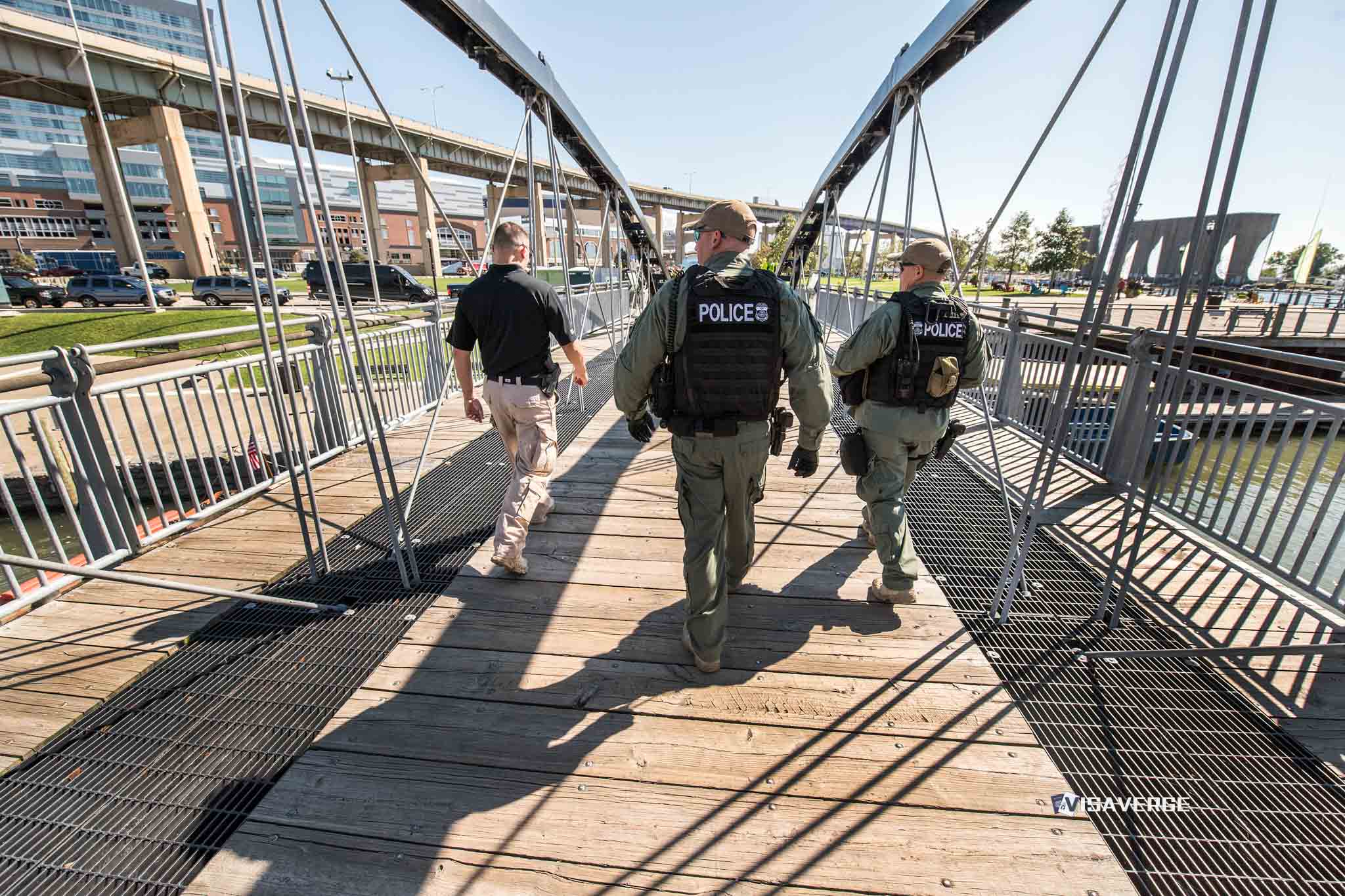A Jamaican reserve police officer, Jon Luke Evans, was arrested by ICE in Maine on July 25, 2025, after trying to buy a firearm for his police duties. The arrest has sparked a heated dispute between federal immigration authorities and local police, raising questions about employment authorization, federal-state coordination, and public safety.
Evans, who worked for the Old Orchard Beach Police Department, had cleared a federal background check and received work authorization from the Department of Homeland Security (DHS) in May 2025. According to Police Chief Elise Chard, Evans completed the required I-9 work authorization form, and DHS’s E-Verify program approved his employment. His Employment Authorization Document (I-766) was valid until March 2030. Despite this, ICE claims Evans overstayed his visa after entering the United States 🇺🇸 in September 2023 and was unlawfully present.

ICE Acting Field Office Director Patricia Hyde criticized the police department, stating, “We have a police department that was knowingly breaking the very law they are charged with enforcing.” ICE also said Evans’ attempt to buy a firearm was illegal due to his immigration status. The Bureau of Alcohol, Tobacco, Firearms and Explosives (ATF) was alerted by the attempted purchase and worked with ICE to arrest Evans in Biddeford, Maine.
Chief Chard defended the department’s actions, saying, “The department is distressed and deeply concerned about this apparent error on the part of the federal government.” She explained that Evans was only hired after DHS verified his documents and that the department was not informed directly by ICE about his detention, learning about it from the media instead. The department has started an internal review and called for a federal investigation into the possible error in DHS’s employment authorization system.
This case highlights several important issues:
- Federal-State Coordination Gaps: The incident shows possible errors in the E-Verify system, with DHS approving Evans’ work authorization while ICE later claimed he was unlawfully present.
- Local Law Enforcement Vulnerability: Maine’s policy allowing non-citizens to serve as reserve police officers is now under review, as most states do not have similar rules.
- Employment Authorization System Reliability: The reliability of E-Verify and DHS’s internal communication is questioned, as Evans’ documents were approved and valid, yet ICE took enforcement action.
- Public Safety and Legal Compliance: ICE and ATF are increasing scrutiny of non-citizens in law enforcement, especially regarding firearm access.
Similar cases have occurred in Maine, including the arrest of a Congolese corrections officer for overstaying a visa and trying to buy a firearm. As reported by VisaVerge.com, these incidents may lead to policy changes in Maine and other states regarding non-citizens in law enforcement roles.
The Old Orchard Beach Police Department is conducting an internal review and has called for a federal investigation. Evans remains in ICE custody, with no public information about his legal representation or next court date. For more on employment authorization and E-Verify, visit the official E-Verify website.
This case may prompt reviews of federal employment verification systems and state policies, affecting immigrants, law enforcement agencies, and public safety across the United States 🇺🇸.
Learn Today
ICE → U.S. Immigration and Customs Enforcement, federal agency enforcing immigration laws and detaining violators.
E-Verify → A DHS electronic system that checks employee work authorization against federal immigration records.
Employment Authorization Document (I-766) → A DHS-issued card that permits non-citizens to legally work in the U.S.
I-9 Form → A form used by employers to verify an employee’s identity and legal work status in the U.S.
ATF → Bureau of Alcohol, Tobacco, Firearms and Explosives; enforces laws on firearms and explosives.
This Article in a Nutshell
In Maine, a reserve officer with DHS-approved work documents was arrested by ICE for illegal firearm attempt. Conflicts over employment authorization reveal lapses in federal-state coordination, prompting police review and calls for federal investigation into immigration and public safety policies.
— By VisaVerge.com













